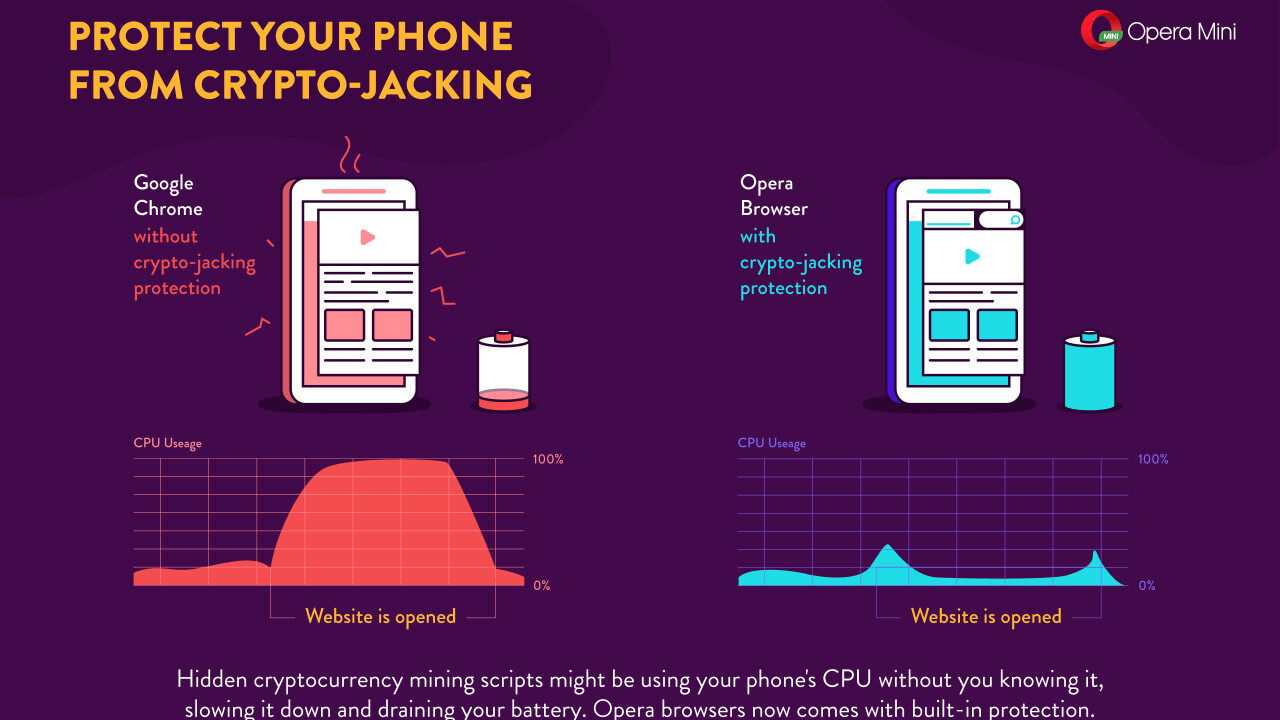
Norwegian (well, technically Chinese) browser maker Opera has introduced cryptojacking protections to its family of mobile browsers — Opera for Android and Opera Mini.
Cryptojacking is where websites (quite often centered around porn and file sharing) embed cryptocurrency mining scripts in their code. While the user remains on the page, these covertly generate digital coins, like Monero.
Generating these coins is extremely resource intensive, however. There are several major user-experience downsides. Those with a cryptojacking website open inevitably find their systems rendered excruciatingly sluggish, and tasks taking longer to complete.
On phones, the issues are compounded. Users can expect measurably worse battery life. They may also find their devices start to overheat, as the phone attempts to keep up with the mathematical calculations required to mine cryptocoins.
“When you browse the web, there are no visual clues that your device is exposed to mining,” said Jan Standal, VP Product Marketing at Opera, in an emailed statement. “A single webpage you visit can take up to 4.5 hours of your battery time, if you keep the tab open. This often turns out to be just the battery time you needed to use a ride-hailing app or check the map to get home”.
On both Opera Mini and Opera for Android, users can activate the cryptojacking protections by heading into ‘settings,’ and switching on the browser’s built-in adblocker.
To check that it works, you can visit this website launched by the company to test the vulnerability of browsers to cryptocurrency mining.

Opera introduced cryptojacking countermeasures to its desktop browser earlier this month. The feature is available starting from Opera 50, and is activated in much the same way: by turning on the integrated adblocker.
Get the TNW newsletter
Get the most important tech news in your inbox each week.





